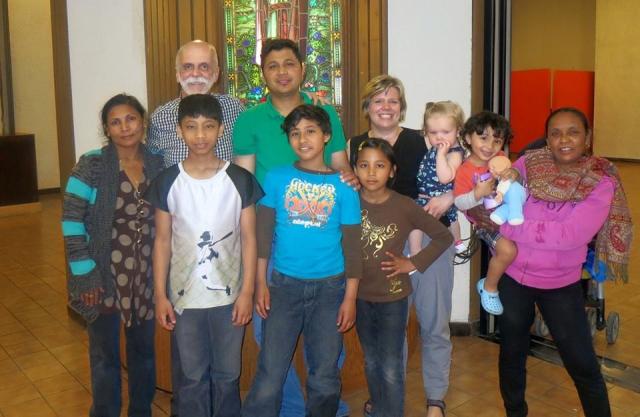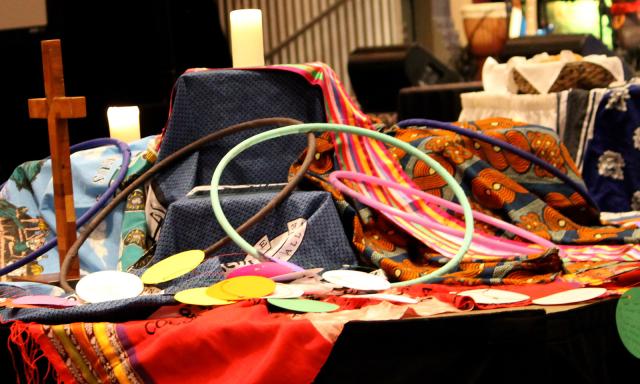We are all challenged to change the ways our communities worship, live, and work together.

In Sunday services at Downsview United in Toronto, worshippers regularly share testimonies from people whose life experiences are very different. The congregation, which uses English in worship, offers prayer in Twi, Dutch, Tagalog, and Yoruba. The youth and young adult preaching program has enriched and stretched worship, and there is a weekly intercultural Bible study. Monthly, a praise service is followed by a community meal.
Hillhurst United Church in Calgary is becoming known as a safe space for LGBTTQ peoples. When making introductions, members may choose to offer their preferred pronoun as well as their name. The church has remodelled its washrooms and made them explicitly for all genders. And people consciously avoid language like “ladies and gentlemen” that slots everyone neatly into two binary genders.
Winnipeg’s Knox United is a community hub in one of Canada’s most culturally diverse neighbourhoods. The congregation, too, is diverse. Immigrant and refugee families from all over the world weave together their traditions to form an intercultural faith community. Groups such as the Nepali-speaking fellowship also worship in their home language. Knox is engaged with the neighbourhood through its commercial kitchen (new business incubator), employment training, women’s centre, global market, and community garden for newcomer families.
These are all examples of our intercultural commitment in action.

New Ways of Being Church Together
The United Church is committed to living out an intercultural vision. The commitment to becoming an intercultural church was made at General Council in 2006, reaffirmed in 2009, and the vision developed in 2012. It challenges us to change the ways our communities worship, live, and work together.
God is calling us to find new ways of being church together. It is not simply a matter of continuing with traditions we have become comfortable with, and allowing others to join us. Rather, the intercultural vision calls us to be aware of who is at the centre and who is at the margins, and to empower those at the margins to lead us into change.
Try asking: Who is present, and who is not? Who is heard and listened to, and who is not? Whose leadership is respected, and whose is ignored? Who finds an easy place in our community, and who will pick up subtle signals that they don’t belong?
More Than Multiculturalism
All communities, and all communities of faith, are rife with diversity. They may have a range of races and languages and physical abilities. Or it may be a range of generations, financial situations, backgrounds and experiences, levels of education, and so on. The more closely you look, the more differences you find.
But over time, certain ways of dressing, speaking, interacting in a group, and so on, become understood as “normal.” Participation becomes difficult for people who don’t share these norms. They may be told that they are welcome. But they feel—and are often treated—like an outsider.
Multiculturalism often goes no further than celebrating ethnic foods, music, or clothing. The intercultural vision challenges us to go much deeper. It challenges the dominant culture to recognize that it has become too comfortable, and that no culture has a monopoly on wisdom. We are challenged to let “outsiders” lead, and to accept the vulnerability of not having all the answers.
Learn more about the biblical background and about some practical ways to get started. If these ideas excite you, challenge you, or leave you wondering what this is all about, we’d like to hear from you. Please contact: